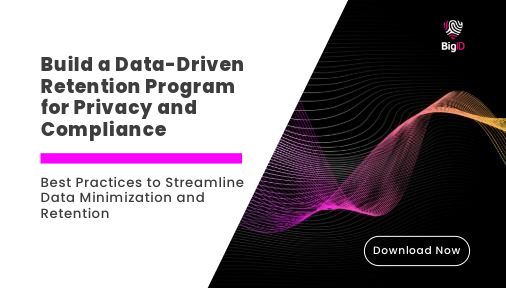The General Data Protection Regulation (GDPR) continues to shape how businesses collect, process, and protect personal data. But in 2025, compliance is no longer just about meeting checkboxes—it’s about staying ahead of both evolving enforcement trends and regulatory reform efforts.
This year, the European Commission is preparing to introduce proposals aimed at simplifying GDPR, especially for small and medium-sized enterprises (SMEs). While these changes are part of a broader push to reduce regulatory burdens across Europe, they also emphasize the importance of staying agile, informed, and prepared.
In this article, we’ll cover:
- The latest GDPR compliance updates and simplification plans
- New enforcement trends and risk areas
- How businesses can future-proof compliance amid regulatory change
What’s Changing in GDPR Compliance for 2025?
1. Simplification Is on the Horizon
The European Commission is expected to deliver a proposal to simplify GDPR by June 2025, as part of a larger “omnibus package” designed to reduce red tape and enhance the competitiveness of European businesses. This package—delayed from its original April target—focuses in part on easing record-keeping obligations for SMEs, a common pain point for smaller organizations.
Commissioner Michael McGrath confirmed that this effort is part of Commission President Ursula von der Leyen’s broader plan to streamline EU regulations, alongside initiatives on sustainability reporting and investment access.
While many policymakers, such as Denmark’s Digital Minister Caroline Stage Olsen, are championing the reform, privacy advocates like EDRi have warned that simplification efforts must not weaken privacy protections or give in to lobbying pressure.
What this means for you: Even if GDPR is simplified for some, compliance obligations remain complex for most mid-size and enterprise-level organizations—especially those operating across borders or using AI-driven systems.
2. Cross-Border Data Transfers Remain Under Scrutiny
Despite the rollout of the EU-U.S. Data Privacy Framework, regulators continue to monitor international data transfers closely. Organizations must still document Transfer Impact Assessments (TIAs) and implement supplementary safeguards under the latest SCC requirements.
Expect continued focus on whether your cross-border data handling meets GDPR expectations—simplified regulation or not.
3. AI and Automated Decision-Making in the Regulatory Spotlight
As AI adoption accelerates, regulators are closely watching how personal data powers automated decisions. Article 22 of the GDPR grants individuals the right to opt out of being subject to automated processing with significant impact—and in 2025, that’s becoming a flashpoint for regulators across Europe.
This intersects with the upcoming EU AI Act, making it even more critical to ensure your AI systems are explainable, ethical, and privacy-compliant.
4. Retention Policies and Data Minimization Under the Microscope
Authorities are prioritizing audits on data retention and minimization, targeting companies that keep personal data without clear justification. Regulators want to see strict internal policies—not just documented, but enforced across systems and teams.
New GDPR Challenges Companies Face
Even with potential simplifications, most businesses still struggle with:
- Unstructured data sprawl: Personal data hiding in collaboration tools, emails, or file shares.
- Limited data visibility: Difficulty maintaining a complete, real-time inventory of sensitive data.
- Manual workflows: Inefficient handling of DSARs, consent, and records of processing.
- Regulatory fragmentation: Balancing GDPR with newer frameworks like the AI Act or national laws.
Get Scalable GDPR Compliance with BigID
GDPR isn’t going away— but it is getting smarter. Even as simplification proposals make their way through the EU legislative process, organizations must remember: simplification does not mean elimination. Enforcement will continue. Privacy expectations will grow. And transparency will remain a top priority—for regulators and consumers alike.
BigID helps organizations go beyond checkbox compliance to build smarter, scalable privacy programs. Whether you’re managing GDPR, preparing for AI audits, or navigating cross-border data flows, BigID delivers:
- Automated discovery of personal, sensitive, and high-risk data
- Real-time data maps and processing records
- Policy enforcement for retention, minimization, and consent
- Out-of-the-box support for GDPR, AI governance, and global privacy laws
Get a 1:1 demo with our compliance experts to ensure your privacy program stays ready, resilient, and future-proof.


